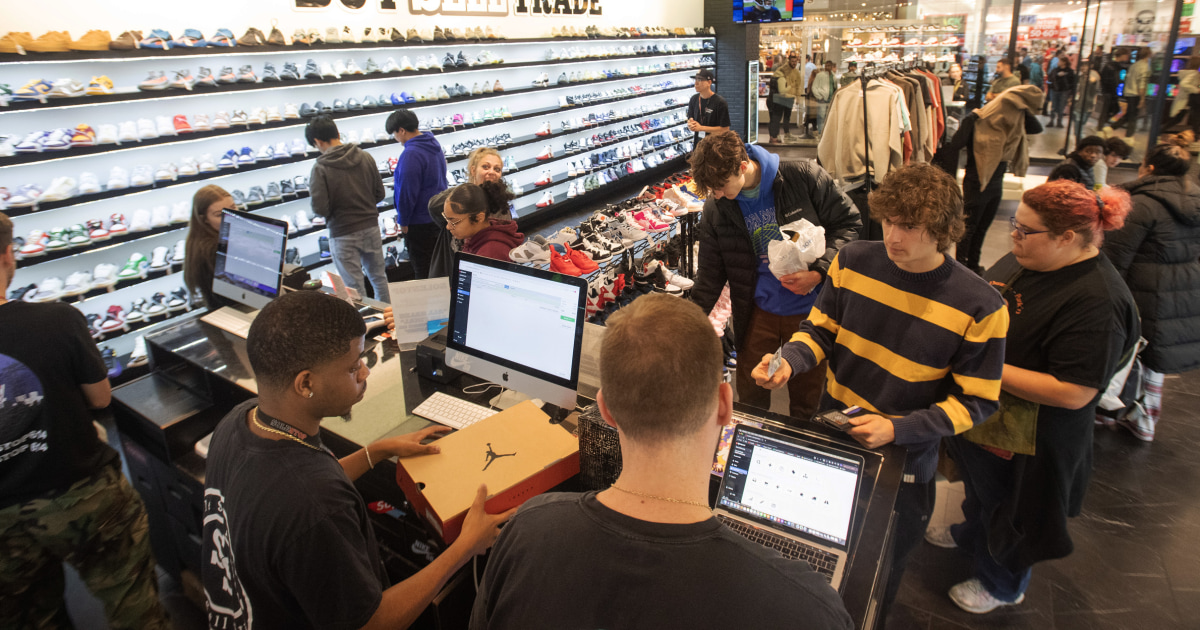New government data showed prices notching a monthly decline for the first time since April 2020, adding to an improving picture on inflation as the new year looms.
The Personal Consumption Expenditures Price Index (PCE), one of two major readings on inflation, fell by 0.1% between October and November, the Bureau of Economic Analysis said Friday — the first monthly decline in more than 3 1/2 years.
Combined with other recent data showing disposable personal income and consumer sentiment rising, the United States’ economy appears to be heading into 2024 on strong footing even as it cools down. That has boosted expectations for a potential “soft landing” that reins in inflation without triggering mass layoffs or a recession.



No they didn’t. I don’t care how they manipulated the data.
Yeah, the issue with consumer price index is that it can be manipulated. It’s just a price list for commonly bought items. But that list can be changed to suit the study.
The irony is that higher CPI increases GDP and capitalism. Many contracts define allowable year over year renewal price increase by the CPI.
The pathological inability some people have to not be able to accept any good news ever always surprises me.
The reported drop is probably inside margin of error.
When everywhere you look is full of bad news, it can condition someone into only accepting bad news and treating good news with intense scrutiny.
I will accept good news when I see good news. Hell the prices of groceries went up from Thanksgiving to now. I am buying many of the same items for Thanksgiving and Christmas Day and I can see the prices went up. How did your health insurance premiums change this year? Mine went up.
It’s because of decades of sensationalized news. It’s not pathological, it’s learned, and for good reason.
For example, a few months back I saw an article talking about how actually, inflation is over and prices are actually dropping… They just didn’t mention the fact that things like food and healthcare were still rising, and that actually most expenses for normal people were still going up
Both of those have gone up for me the last four weeks. Inflation is not over until the day my insurance premiums and grocery bills go down. Going up at a slower rate does not mean inflation is over. Going down means it is over.
Let me know when that happens and I will enjoy the good news.
No. Going down is called deflation and it’s fucking ruinous to the quality of life for people that have to live through it. Wages and prices always go up. When they mismatch, it hurts. But you don’t wish for them to go down. It’s a death spiral and nobody really knows how to reliably stop it.
Backwards logic right here of the economist
If people spend less on healthcare and food for the same product and services it will be “fucking ruinous”.
Yeah dog! Just go ahead and “do your own research” right? Fuggen “common sense” tells you what you need to know! No damned feckless eggheads telling YOU how shit actually works! All lies!!!
Basically yes. Economics has a predictive power of chance, bases their assumption on a sentient that has no relationship to humanity, prefers to avoid empirical evidence, and continues to advocate for ideas that benefit their employers.
The consensus among economists is that government bailouts of banks are a good idea while wiping out student loan debt is a bad idea. This really illustrates it well. Banks employee economists so economists defend them.